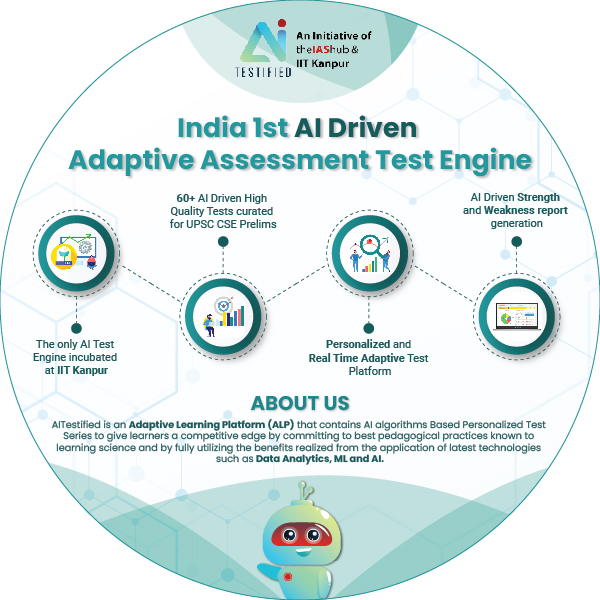Q. Though Gross Domestic Product (GDP) is an important indicator of economic progress, it does not reflect the economic development of the country completely. Elaborate. (Answer in 150 words)
03 Oct, 2022
GS III
Daily Answer Writing 2022-23 ( Upgrade)
Modal Answer
Modal Answer
While India is slated to become the fastest growing major economy in the world in 2022-23 (GDP growth >7%), it continues to harbour the largest number of world’s poor.
This reflects the dichotomy between employing GDP as a measure of progress and GDP as an indicator of economic development.
Significance of GDP:
- Indicator of economic growth: GDP provides key information about the size & performance of an economy (expanding or contracting economic output).
- Comparative Analysis: Easy to compare GDP growth over a period of time, and for cross country growth analysis. E.g. China ($17 trillion), India ($3 tr.), USA ($24 tr.).
- Policy Planning: Policymakers rely on GDP to decide on interest rates, taxes, public spending & trade policies.
- Investments - Investors and businesses make decisions by understanding an economy’s health through GDP.
- Indicator of employment: For eg. a declining GDP reflects pay freezes and lost jobs.
- Consumer confidence: GDP helps in deciphering the private consumption (60% India’s GDP).
- Ease of calculation: Reliable indicator as calculated from a formula used by a majority of countries.
While GDP reflects the quantitative economic growth, Economic development is a wider, qualitative concept.
Limitation of GDP as a measure of economic development:
- Narrow indicator: Fails to show quality of life, health, literacy, political freedom, leisure, happiness, etc.
- Ignores Inequality: A higher GDP may result in rising economic, regional & gender inequality. g. – top 10% hold 80% of total wealth.
- Population growth: Rate of population growth, if higher than GDP growth rate, leads to lower economic welfare.
- Excludes non monetary & informal activities:g. unpaid care and domestic households work.
- Unaccounted Ecological impact: Annual cost of environmental degradation (negative externality) is 5.5% of India’s GDP.
- Takes both ‘economic good’ and ‘economic bad’ into account: Production process could be immoral and high GDP could be due to trading drugs or guns.
- Neglects quality improvements: not adjusted in GDP. E.g. better computers today are monetarily cheaper.
Way forward
- Need Alternative approaches to Complement GDP For eg. UNDP HDI Index (Health, Education, & Standard of Living), Bhutan’s Gross Happiness Index, Green GDP, SDG Index (Social, Economic & Environmental goals) etc
- Focus on Ease of Living along with Ease of Doing Business.
Thus, while GDP can act as a means, Inclusive GDP (calculating both quality and quantity) must act as the goal of measurement of economic development.
Please login to upload your copy.
Uploaded Copies
No copies found.
